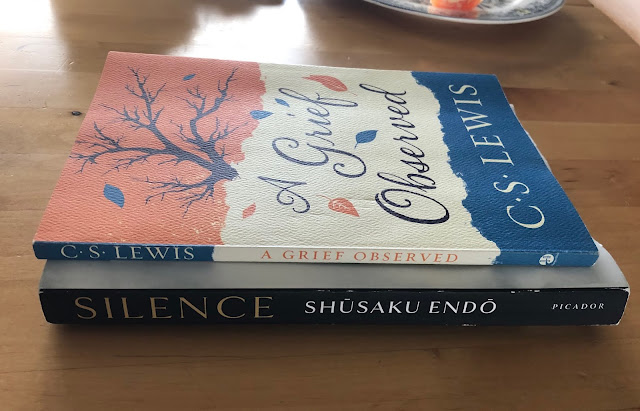C.S. Lewis first published A Grief Observed under a pseudonym, perhaps self-conscious about letting others read about his anger and doubt, and eventual reconciliation, following the death of his wife. It’s one of the most open and honest confessions we have, made powerful because C.S. Lewis has been such a successful apologist and spiritual mentor to so many of us. We can see that even this colossus of reasoned faith is a human who struggles like us after all. To me, that makes the written testimony he left behind more precious and encouraging, not less.
That’s why I decided to write about my anxiety going through this COVID-19 pandemic. I want to be open about how I’m handling this. It’s time for what I’ve taught others to live up to the test in me. Usually, I am not an anxious person and so have been shocked to see the miasma that has descended on me over the past few weeks. It’s a strange experience: prolonged listlessness, fraying patience, sleepless nights, and more than anything a feeling of helplessness.
Writing on March 28, it’s clear that the United States will see hundreds of thousands of confirmed cases of the coronavirus and that a number of these people will suffer immensely and even die alone in a hospital bed apart from their loved ones. This will be the terrible result of our best efforts to distance ourselves socially, and even so immensely better than the alternative of letting the virus run rampant throughout our entire population. Despite our wealth and technology, there is no way to dodge this. We simply must bear it as best we can until it’s over.
How does my faith help me in this time? More than ever, I understand that faith is not an intellectual exercise, “God is sovereign and good,” but trust in a person, “I trust that God sees and will aid us.” The Bible tells us to lift up our cares and concerns to God, and my bundle of cares seems so heavy. I worry about people in our church family, about the economy, about the government, about how people in nations without robust healthcare infrastructure will fare. I’m so anxious because there’s so little I can do—except to pray to the person that I believe can do something. Throughout the day, every day, I stop and pray to God, asking Him to protect my family and friends, strengthen and protect our healthcare workers, and give our leaders wisdom.
Recently, I read Silence by Shūsaku Endō, a novel about persecution of Japanese Christians in the 17th century. The theme of the novel is the apparent silence of God as His followers are persecuted. It’s not a comfortable book to read as a believer, but it is a good reminder of the relative ease and safety we still enjoy in 21st century America, coronavirus notwithstanding. Throughout history, Christians have called upon their God to help them in the midst of tribulation. “Dear friends, do not be surprised at the fiery ordeal that has come on you to test you, as though something strange were happening to you,” writes Peter to believers in the first century. These words hadn’t really meant anything to us before.
I see this period of anxious helplessness as a trial or test. Trials come to prove the genuineness of our faith, writes Peter. What will my response be? Will it show that my faith all along has been just an intellectual exercise, or do I really trust my proclaimed Savior? I don’t know how long this will last—perhaps throughout the year if the virus spreads and peaks in yet unreached areas, and then comes back seasonally. We may be in the very early stages and need to prepare ourselves for the long haul. This is going to be a real trial. I pray that I emerge with a better understanding of myself and who my God is.
I lift up my eyes to the mountains—
where does my help come from?
My help comes from the LORD,
the Maker of heaven and earth.
~ Psalm 121:1-2

No comments:
Post a Comment